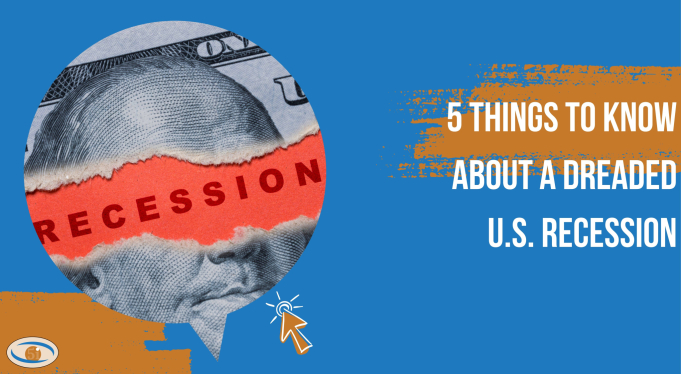While investors fear the economic effects of a downturn, they can create stock market opportunities
Investors as a group are very worried about a recession these days. And for good reason: The U.S. gross domestic product (GDP) showed a decline of 0.3 per cent in the first quarter of 2025, and Canada’s economy is barely scraping above zero per cent these days. Trump tariffs, wars, inflation, job losses, housing, the stock market, profits: you name it, it’s not all roses out there.
So, since everyone is worried about one, let’s take a closer look at the key facts of a dreaded U.S. recession.
What exactly is a recession
For the media, the main criterion of a recession is when there are two straight quarters of economic decline, as measured by GDP growth or lack thereof. Officially, in the U.S., it is the National Bureau of Economic Research (NBER) that officially calls a recession. NBER defines a recession as “a significant decline in economic activity that is spread across the economy and lasts more than a few months.” Note that during the COVID-19 pandemic, the economy fell off a cliff but the economy did not actually experience six months of economic decline. But NBER concluded that things were so bad, and so widespread, that yes indeed there was an official recession in 2020.
Most recessions are very short
One reason we at 5i Research tend usually to be optimistic is that even when times are very bad the economic difficulty tends not to last very long. Most recessions are quite short. 100 years ago, because there were fewer government support programs and even no Federal Reserve, recessions were more of a big deal. No one wants to relive the Depression of the 1930s. But in more recent times, things improve much faster. In the six official recessions since 1980, the average duration was only 10 months. The COVID recession, as noted, was over in two months. So for stock investors it can be better just to ride things out rather than sell. It’s essentially impossible to sell, pay taxes, lose dividends and then rebuy within a 10-month period and end up ahead, unless you have absolutely perfect timing, and we know that’s not likely to happen.
The data used to signal a recession
When looking at “the economy” to determine whether we are in recession, economists at NBER look at dozens of factors. NBER notes there is no fixed rule about which measures to use, but the most likely ones to focus on are personal income and the labour market (job gains versus losses). Many investors will watch monthly non-farm payroll numbers for clues as to the economy’s direction, but there are plenty of other indicators, some definitely on the quirky side of things. Some even like to watch the “junk food index” on the assumption that when times are tough consumers eat out less often. Some even watch Beyonce’s ticket prices for economic clues. The stock market itself can be a giant clue to recessions. While it has lots of false positive readings, the market tends to be more prescient than most economists. This year’s decline in the U.S. stock market may be a big clue. Economists, on the other hand, as the joke goes, have predicted 20 of the last four recessions.
The problem: All data are backward-looking
To call a recession, economists need to look at the data they have in hand. Sure, data points such as consumer confidence are more leading indicators, but all the actual data that economists use tend to be in the past. With recessions and with investments, past performance is no guarantee of the future. The impact of backward-looking data tend to drive a “bad news is good news” mentality at times. Essentially, when all the news is bad it can be a very good time for investors to start buying. That’s because, simply, when you are at the bottom there is nowhere to go but up. When the data are so bad and sentiment is so horrible any good news can have an amplified positive impact. This of course is hard to call, but it is important to remember that once a recession is officially called, it is often already over.
The opportunity: The market looks forward
The average investor is very scared of recessions. The media highlight the bad news, such as declining house prices, job losses and weak corporate profits. Investors know that the stock market is driven by profits, so they tend to worry and sell their stocks when recession talks surface. Certainly, if you lose your job in a recession then of course there is a serious personal impact. But for us at 5i Research, while we certainly do not love recessions, they do certainly create stock market opportunities. As noted, when all the news is bad, stocks tend to become very attractive. If you can look beyond the pessimism in a recession, you can see opportunity. And this makes intuitive sense, if you put yourself in the shoes of a chief executive. In a recession, corporate executives get worried too. They fire staff, cut costs and hunker down for the bad times ahead. Then, when economic conditions improve, suddenly profit margins soar because costs are much lower. Yet stocks can be cheap because of all the previous recession concerns. Higher margins and low stock valuations can be a very profitable investor combination.
Unlock the Power of Informed Investing with 5i Research!
DIY investing doesn't have to mean going it alone. At 5i Research, we're your trusted partner in navigating the stock market. Our platform offers comprehensive stock and market research, empowering you to make smart investment decisions.
- Investor Q&A: Have burning questions? Get answers from our team of experts and fellow investors in our dedicated Q&A section.
- Research Reports: With over 60 meticulously researched Canadian stocks, our reports offer in-depth analysis, giving you the confidence to invest wisely.
- Model Portfolios, Alerts, Forums, Portfolio Tracking, and Much More.
Take Care,







Comments
Login to post a comment.